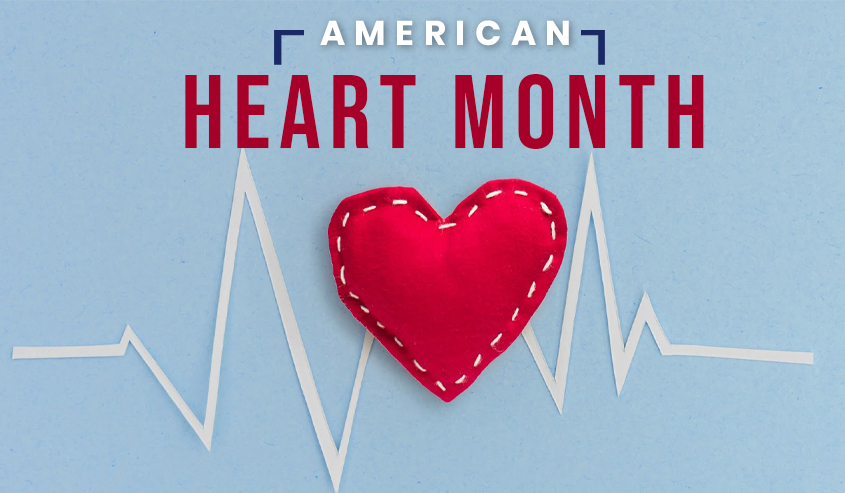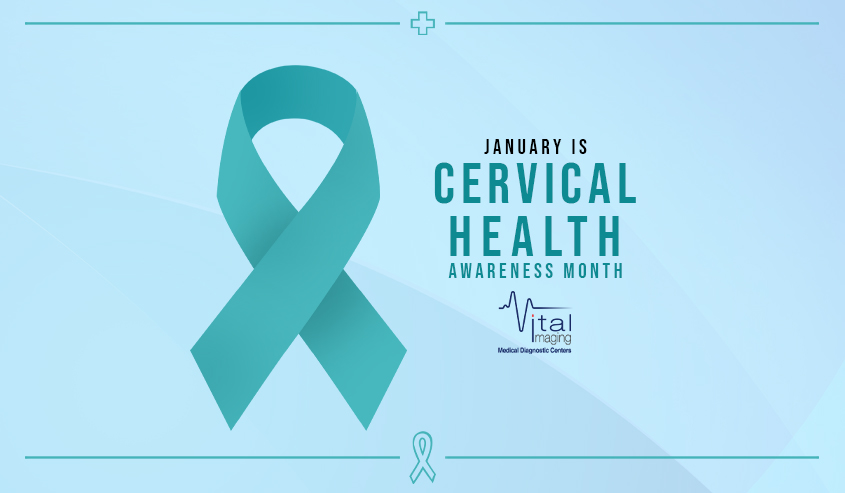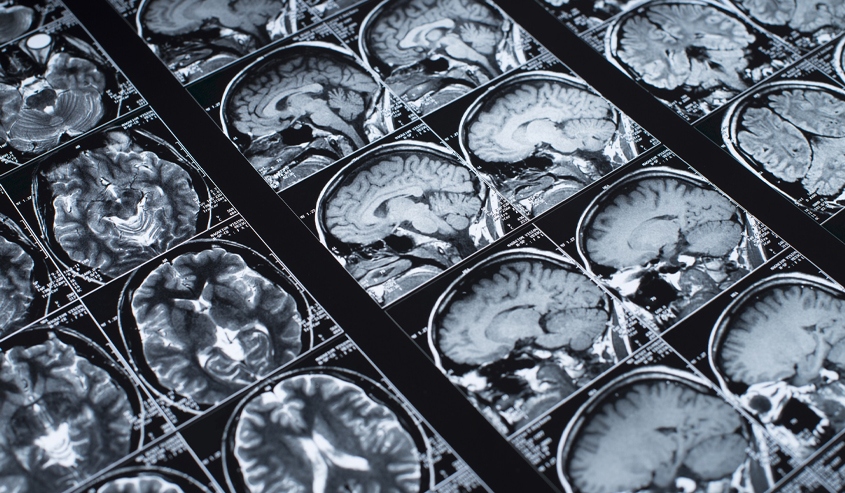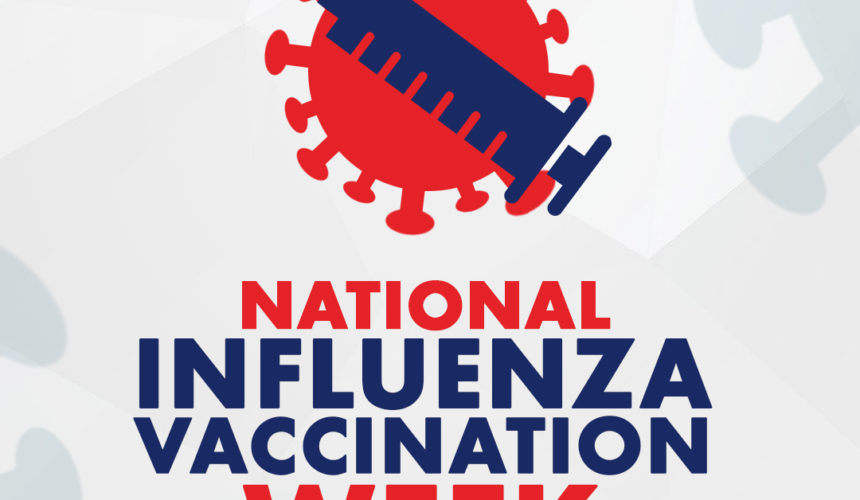The week of February 8th through the 14th is National Cardiac Rehabilitation Week and founded by the AACVPR (American Association of Cardiovascular and Pulmonary Rehabilitation). Established in 1985, the AACVPR focuses on increasing awareness of cardiac rehabilitation and its many benefits. The organization’s primary goal is to reduce the disability and mortality caused by cardiac and pulmonary disease through clinical research, education, management, prevention, and rehabilitation. What does Cardiac Rehabilitation involve? Many individuals at risk of or are already suffering with heart disease have improved their physical health and performance with cardiac rehabilitation. So, what exactly does it involve? Cardiac...

Congenital Heart Defect Awareness
The American Heart Association named the month of February as American Heart Month. However, there are other heart health awareness campaigns that occur during this month as well. What is a Congenital Heart Defect? A congenital heart defect occurs before birth and is a condition where the blood vessels adjacent to the heart or the heart itself don’t develop normally. The term “congenital” means existing at birth. Although congenital heart disease and congenital heart defect are often used interchangeably, defect is the more accurate of the two. This condition is not a disease but an abnormality. Your pediatrician or other...

American Heart Month: Diagnostic Imaging in Heart Health
In addition to the month of February being American Heart Month, the focus is also on women’s heart health. As you may or may not know, cardiovascular disease or heart disease is the #1 killer of women. So, in order to raise awareness, the American Heart Association created “Go Red for Women”, its signature women’s initiative that happened this past Friday. Go Red for Women is a comprehensive platform that was developed to increase awareness of women’s heart health. Consequently, people are urged to wear red on that day to commemorate this initiative. After reading this blog post head on...

National Blood Donor Month
In addition to the start of the New Year, January is National Blood Donor Month, the observation of which was inspired by the American Red Cross that began in January, 1970 under former President Richard M. Nixon. If you’re wondering why the month of January, it’s because blood and platelet donations decline while the demand increases. Consequently, millions of Americans including car accident victims, cancer patients, and organ recipients rely on others to donate blood. The Importance of Blood Donations The Red Cross collects roughly 5.6 million blood donations annually from 3.3 million individuals. This is needed for the creation of...

National Glaucoma Awareness
For those of you that have been blessed with healthy eyesight, visiting the eye doctor and having a tonometry test performed may not be high on your list of priorities. But for those of you who wear contacts or corrective lenses, your optometrist has performed this test every time you visited them for your annual eye exam. The month of January is National Glaucoma Awareness Month and is sponsored by both the National Eye Institute and the American Academy of Ophthalmology. “The Sneak Thief of Sight” Since there are no identifiable symptoms of the disease, glaucoma is often referred to...

Cervical Health Awareness Month
Due to the fact that nearly 13,000 American women are diagnosed with cervical cancer every year, the U.S. Congress has designated the month of January as Cervical Health Awareness Month. The hope was that it would raise awareness of the disease as well as the significant role that diagnostic screenings can play in a woman’s cervical health journey. At one time, cervical cancer was one of the leading causes of death among women and is frequently diagnosed among women ages 35 to 44. Cervical Cancer Deaths are Decreasing Fortunately, we have witnessed a decrease in cervical cancer related deaths thanks...

Thyroid Awareness
With the New Year here, many of us are still thinking about resolutions and how to overcome certain obstacles in our lives. Others will most likely try to focus on bettering their health. In any event, most of us are unaware that January is Thyroid Awareness month. During this time, we want to remind individuals with thyroid issues to ensure that it’s functioning properly. Remember, your thyroid plays a significant role in the functions of other vital organs. Consequently, if your thyroid isn’t functioning properly, there’s a good chance you aren’t either. If you notice some of the signs such as...

Cause and Treatment of Brain Tumors
Physicians employ a number of tests for the diagnosis of brain tumors and to learn what type it is. Furthermore, they will use different tests to determine if it has spread to other areas of the body. Plus, they will do tests that help them determine the best course of treatment. In most cases, the only definitive way doctors can determine the existence of a tumor is to take a tissue sample. This may be accomplished by performing what is called a “biopsy” or the surgical removal of all or a part of the tumor. How Diagnostic Imaging Can Help?...

National Influenza Vaccination Week
It’s National Influenza Vaccination Week! Influenza infections result in increases in healthcare costs and productivity loss every year. On a global scale, estimates show that there are between 3 and 5 million severe cases of the flu and up to half a million deaths annually. Furthermore, studies have also shown that anywhere from 5% to 20% of the U.S. population gets sick with the flu in a typical influenza season. Sadly, nearly a quarter of a million will be hospitalized while approximately 36,000 will die. Impact on Demographics The annual influenza epidemics that we’ve seen in the Northern Hemisphere in...
National Handwashing Awareness Week
As National Handwashing Awareness Week comes to an end we wanted to highlight the importance of this habit. Not only is this a good starting point for becoming more hygienic, but due to the COVID-19 pandemic, it’s an excellent habit to develop and maintain permanently. Furthermore, it is one of the most effective ways to prevent the spread of germs, illness and infections. The bottom line is that personal hygiene starts and ends with the handwashing. As children, we were taught the importance of washing our hands before every meal. Unfortunately, germs could care less about the time of day. ...

